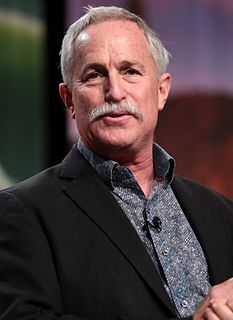A Quote by Simon Mainwaring
More and more companies are reaching out to their suppliers and contractors to work jointly on issues of sustainability, environmental responsibility, ethics, and compliance.
Related Quotes
Now is not the time to repudiate environmental balance, but rather it is the time for all of us to work together - politician, advocate, rancher, scientist, and citizen. Only by doing this will the United States move forward and be a leader in environmental issues and ensure sustainability to our delicate ecosystem.
Sustainability has become a religion in architecture - not that there's anything wrong with it - but I think it has to work both ways. Everyone thinks architecture has to be subservient to sustainability, but what if we thought in the other direction, like, what can sustainability do to make architecture more exciting?
The idea of sustainability can imply there is one perfect, unchanging future, if only we could work out how to get there. Resilience might be more useful, in that it assumes a dynamic environment and that perfection is impossible. You need to design systems to accommodate failure rather than eliminate it. By trying to be perfect, many visions of sustainability are quite brittle
The twin sister to autonomy and freedom is responsibility and accountability. You cannot have one with out the other. If someone is given an area of responsibility, not only must they be set free to do it, they must also be held accountable for what they do. Accountability clarifies freedom. In the teams and companies where you see boundary confusion, power struggles, control, over-reaching of one's line of responsibility, you will also see lapses in accountability as well.
The money that fueled the explosion of gluttony at the top had to come from somewhere or, more specifically, from someone. Since no domestic oil deposits had been discovered, no new seams of uranium or gold, and since the war in Iraq enriched only the military contractors and suppliers, it had to come from other Americans.



































